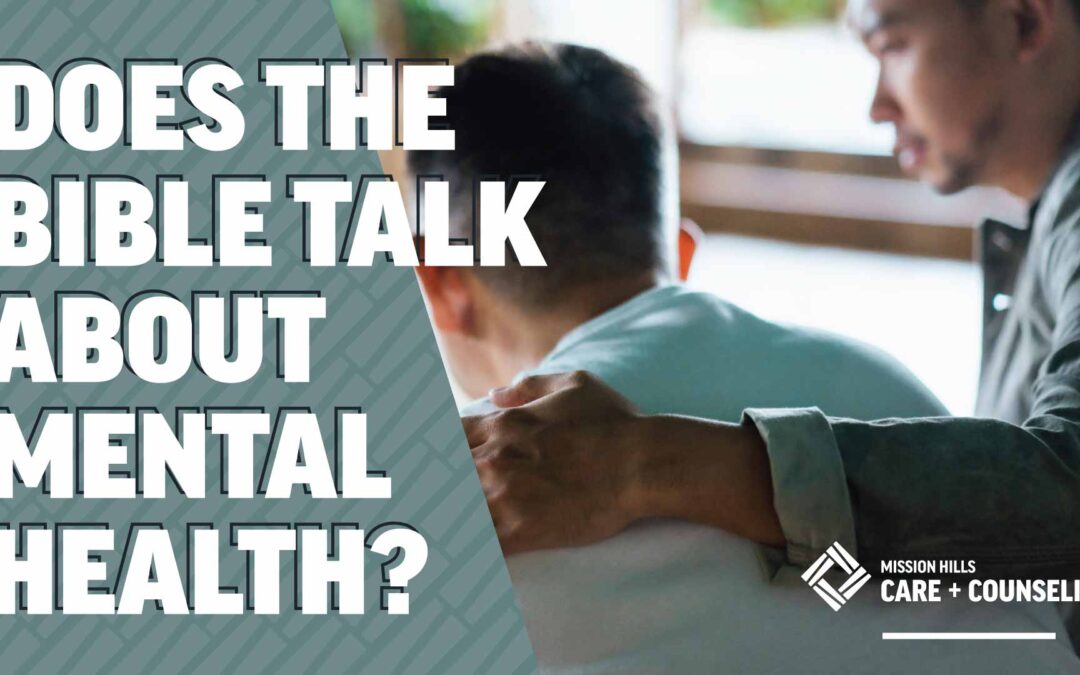Mental health is a popular and growing societal focus.
The human brain, the most complex of organs, influences all that we experience, both good and bad.
As the stigma around mental health continues to (thankfully) decline, more and more people openly share their struggles. You may know of at least one person dealing with a mental health issue.
Perhaps the person you’re thinking of is you.
Whether it impacts you or someone you know, its widespread impact makes us consider what the Bible says about mental health.
The Fall Affects Everything
God’s original design for creation did not include mental health problems.
The first man and woman enjoyed perfect clarity, contentment, and peace of mind. God’s design was to keep it that way.
However, once sin entered the picture (Genesis 3:1-19), everything in creation was broken. We call this “the Fall.”
Romans 8:22-23 tells us that “. . . the whole creation has been groaning as in the pains of childbirth right up to the present time. Not only so, but we (including our minds) groan inwardly.”
The Fall affects everything.
Sin’s effect on the whole person (body, mind, and soul) and every relationship creates conditions ripe for the problems we see in mental health today. We see the Fall’s effect on the mind throughout the Bible.
While the Bible does not use the phrase “mental health,” we see many references in scripture to the psychological suffering that is part of creation’s groans.
One of the more straightforward examples is found in the story of Elijah in 1 Kings 19:1-5.
After God’s incredible victory at Mt. Carmel over the prophets of Baal, Jezebel threatens Elijah’s life. Terrified, Elijah flees, collapses under a tree, and depressively declares, “I have had enough, LORD . . . . Take my life; I am no better than my ancestors.”
In Psalm 6:6-7 David exclaims, “I am worn out from groaning; all night I flood my bed with weeping and drench my couch with tears.”
Moses’ anxiety is palpable in Exodus 3 when God calls him to go to Pharaoh and lead his people out of Egypt. Indeed, we find many examples of anxiety, despair, distorted thinking, and dysfunctional behavior in God’s Word.
Sadly, some in the Church mistakenly argue that mental health problems only result from personal and willful sin. The suffering who believe this can live in shame over their struggle.
However, while willful sin can influence mental health (as it can every other area of a person’s life), we must not overlook the reality that this fallen world can lend us mental health problems (just like physical ones) through no fault of our own.
Whatever the cause, God’s desire, ultimately, is that we find grace and freedom from him to live abundantly regardless of our challenges.
The Fall is Not the End
Thankfully, the story doesn’t end with the Fall.
Jesus came to save the world and make all things new (Revelation 21:5). His redeeming work to heal our messy and broken lives is comprehensive, reaching into our minds as well.
For some, this healing is experienced through God’s provision of treatment and truth (Romans 12:2, John 8:31-32). This can include biblical, medical, and professional sources of help.
Still, despite available help, some may bear the burden of lifelong mental health problems. Yet, even here, God provides his children with a grace that is sufficient for this life (2 Corinthians 12:7-10) and an expectation of complete healing in the life to come (Revelation 21:3-4).
No matter the mental health challenges someone may face, the Bible teaches that God knows all about it and has a plan to love his people through it and eternally free them from it.
One of the reasons we can trust the Bible is that it is real about the messiness of this world. This includes acknowledging the Fall’s effect on our minds.
Thankfully, the Holy Spirit can work to make the messy new through faith in Jesus and becoming like him.
If you or someone you know is looking for resources to address a mental health issue, we would love to help you get connected. Feel free to submit a request through Mission Hills’ “Connect to Care” link via the button below.
Related Sermon

AUTHOR CREDITS

Care Pastor

GRAPHIC CREDITS
🎨 Credit :: Colin McFarland
Digital Marketing Manager


